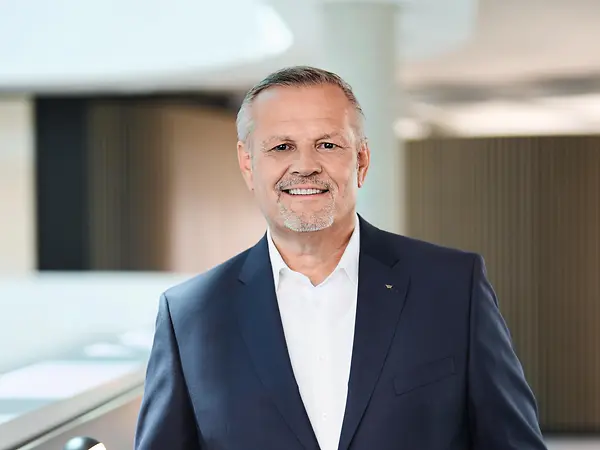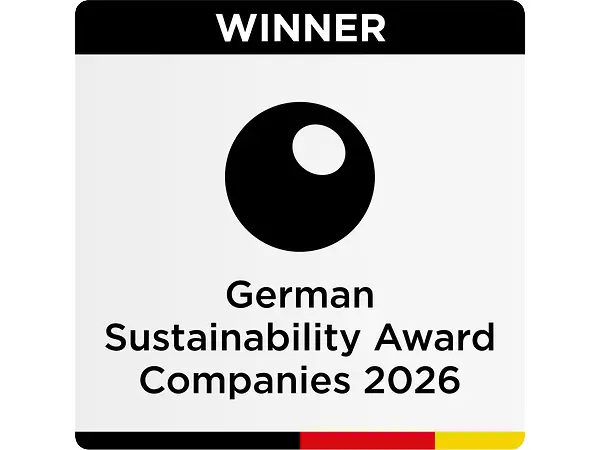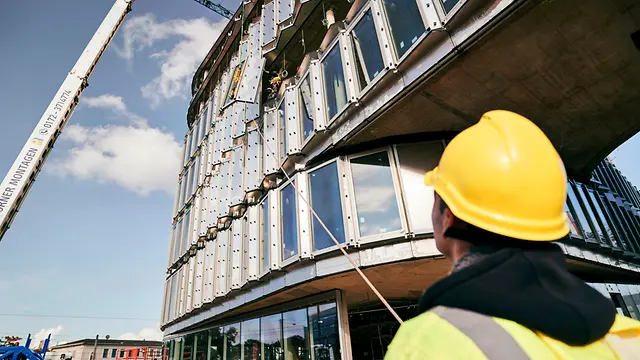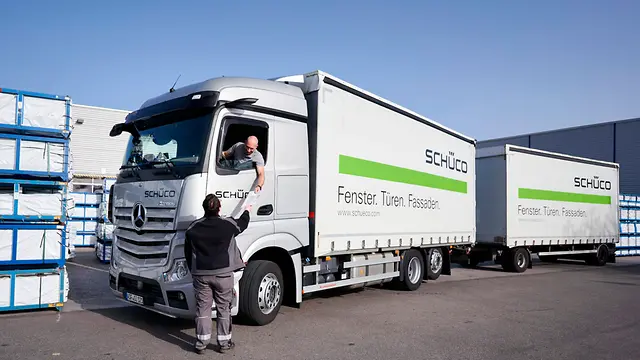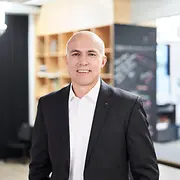the construction industry is facing major challenges throughout the world. Global crises and economic instability are threatening to overshadow the targets of the Paris Agreement. At the same time, our sector continues to account for a considerable proportion of global carbon emissions. It is clear that we must do more to make newbuild and renovation projects sustainable. We at Schüco are also aware of this responsibility. However, it is a complex task that requires more than just technological solutions – it needs a complete rethink throughout the entire value chain. We are therefore actively working together with our suppliers, business partners and customers to develop future-proof, sustainable buildings and shape the Building Revolution.
With Schüco Carbon Control, we introduced a comprehensive product, service and consultancy concept in 2023 to support architects, investors and clients in optimising the carbon in their buildings – from the selection of materials right through to recycling. After all, today's buildings are the raw material stores of the future. In addition to this, Schüco Value Up promotes the renovation of existing buildings using modular solutions, enabling these buildings to be used sustainably and economically for the long term. We also take into account the dismantling and recycling of reusable materials, to ensure resources can be kept in the material cycle. These approaches are bolstering our aim of becoming one of the leading providers of circular solutions and services for sustainable building envelopes.
The support of our customers on the path towards a climate-neural, resource-efficient construction industry is also what drives us. We want our business model to be fully aligned with our sustainability goals and have set ourselves the aim of lowering our carbon emissions to net zero across all of the scopes by 2040. This aim has been validated by the Science Based Targets initiative (STBi) and is therefore grounded in climate science. This means the decarbonisation of the entire business model is a central component of our 2030 Company Strategy. For me, a sustainable transformation of the construction industry is not only essential to achieve the climate targets, but also the only way to ensure long-term economic success. That is why we at Schüco have firmly anchored the further development of our sustainability strategy in the global 2030 Company Strategy, thereby clearly setting out our path for the future.
As part of the Corporate Sustainability Reporting Directive (CSRD), we are currently changing our sustainability reporting so that we follow a uniform standard at European level. This online report already reflects, where possible, the new requirements and therefore prepares for the transition to a more transparent reporting process.
Kind regards
Andreas Engelhardt
